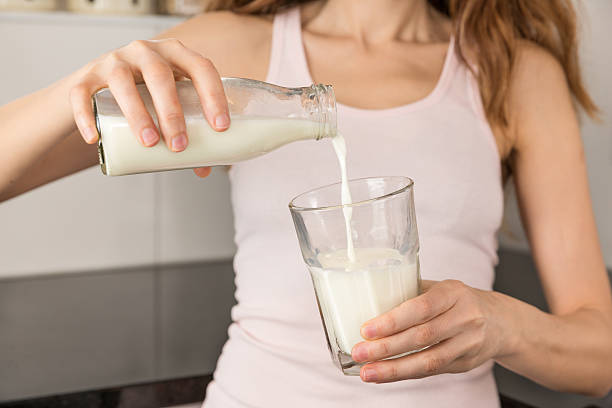Full fat milk, also known as whole milk, is a rich and creamy dairy product that is high in calories. One cup (240 milliliters) of whole milk contains about 150 calories, which is about 7.5% of the daily recommended intake for a 2,000 calorie diet.
Whole milk is a good source of several essential nutrients, including calcium, phosphorus, and vitamins A and D. These nutrients are important for maintaining healthy bones and teeth, as well as supporting overall health and wellness. In addition to providing essential nutrients, whole milk is also a good source of energy, making it a popular choice for those looking to gain weight or maintain a healthy weight.
The calorie content of full fat milk is primarily derived from the fat content. Whole milk is made up of about 3.5% fat, which is why it is higher in calories than other types of milk such as skim or low-fat milk. However, the fat found in whole milk is primarily saturated fat, which has been linked to an increased risk of heart disease when consumed in excess.
Despite the higher calorie and fat content, full fat milk is still a nutritious and healthy food choice. It is an excellent source of calcium, which is essential for strong bones and teeth. It also contains other important vitamins and minerals such as vitamin D, vitamin A, and potassium.
Another benefit of full fat milk is that it is more satisfying and filling than low-fat or skim milk. The fat content in whole milk helps to slow down the digestion process, making it a great option for those looking to control their weight or reduce feelings of hunger.
The recommended daily intake of full fat milk for adults is 3 cups per day. However, it’s important to keep in mind that the calorie content of whole milk can add up quickly, so it’s essential to monitor your overall calorie intake if you’re trying to lose weight.
While whole milk is high in calories, it is also a good source of fat, which is an essential nutrient that is necessary for the body to function properly. The fat in whole milk is mostly saturated, which has been associated with an increased risk of heart disease. However, recent research suggests that the link between saturated fat and heart disease may be more complex than previously thought, and that whole milk may not be as harmful as once believed.
For those who are watching their calorie intake, there are a few options for reducing the calorie content of milk without sacrificing the essential nutrients it provides. One option is to switch to low-fat or skim milk, which is lower in calories and fat. Another option is to use whole milk in smaller amounts, such as in recipes, rather than drinking it straight.
Another alternative is to switch to plant-based milk, such as almond milk, soy milk, and oat milk. These milk alternatives are generally lower in calories and fat than whole milk and can provide similar essential nutrients. Additionally, many plant-based milk alternatives are fortified with vitamins and minerals to make up for any nutritional deficiencies.
In conclusion, full fat milk is a rich, creamy dairy product that is high in calories but also provides essential nutrients like calcium, phosphorus, and vitamins A and D. It is also a good source of energy. While it is high in calories, it is also a good source of fat, which is essential for the body to function properly. There are several options for reducing the calorie content of milk without sacrificing its essential nutrients, such as switching to low-fat or skim milk, using it in smaller amounts or switching to plant-based milk alternatives.

 Home
Home Health
Health Diet & Nutrition
Diet & Nutrition Living Well
Living Well More
More












